Empowering Palestine: The Roles of Academics and Students
The Department of Fiqh and Usul al-Fiqh at the International Islamic University Malaysia (IIUM) hosted a Friday seminar (Nadwat al-Jumuah) on October 27, 2023, focusing on the pivotal theme of "Al-Aqsa the Concern of Ummah: Exploring the Roles of Scholars and Students." The seminar aimed to provide a comprehensive understanding of the complex Palestinian conflict, its historical importance, and the contributions that scholars and students can make to the resolve. In his opening remarks, Dr. Belal BS Salhab, an Assistant Professor in the Department of Fiqh and Usul al-Fiqh at IIUM, provided a comprehensive overview of Palestinian issues. He underlined the profound significance of Quds (Jerusalem) in Islamic history, shedding light on the divine blessings bestowed upon both the city and its inhabitants.
The Miracle and Genocide
Dr. Sharif Amin Abu Shammala, CEO of Al-Quds Foundation Malaysia, delivered a lecture titled "The Miracle and Genocide," highlighting the profound significance of Palestine in Islamic history. He explained the unique historical attributes that distinguish Palestine, emphasizing its divine importance. He recounted the tragic loss of Palestinian land from 1947 to the present day, with Zionist Israel gaining control of 70% of Palestinian territory in 1948 and declaring the establishment of Israel. During the Nakba, approximately 800,000 Palestinians were displaced, and 531 Palestinian towns and villages were demolished. Israeli forces were responsible for over 70 massacres during the Nakba, resulting in the tragic loss of 15,000 Palestinian lives.
During the 16 years of Israeli control, Gaza was under a blockade, yet it didn't experience significant economic or social improvements. Despite enduring an array of extraordinary restrictions and sanctions, and facing relentless external pressures, the people of Gaza showcased remarkable resilience and determination by utilizing their military capabilities to launch an attack. There's a widely held belief that even the slightest movement of a cockroach near the walls constructed by Israel triggers alarms. Yet, these formidable preparations, military forces and technological advancements couldn't deter the people of Gaza, who have been deprived of the most basic necessities such as adequate water, electricity, and even essential healthcare services. In spite of these severe deficiencies, they not only mounted fierce resistance but also astounded the Israelis by successfully carrying out their attack and securing hostages. It is truly a miracle.
Dr. Sharif Amin Abu Shammala provided detailed information about the origins and significance of the recent events at Al-Aqsa and how they challenged Israel's highly advanced security forces. The discussion also highlighted the severe humanitarian toll, particularly the loss of life among children and women, which raises questions about the world's response to the Palestine issue. Dr. Sharif addressed the explosion at the al-Ahli Arab Hospital in Gaza City during the 2023 Israel-Hamas conflict, which resulted in a significant loss of life and injuries among displaced Palestinians seeking refuge there. Furthermore, he emphasized the presence of what he views as divine miracles in Palestine, with a particular focus on Gaza.
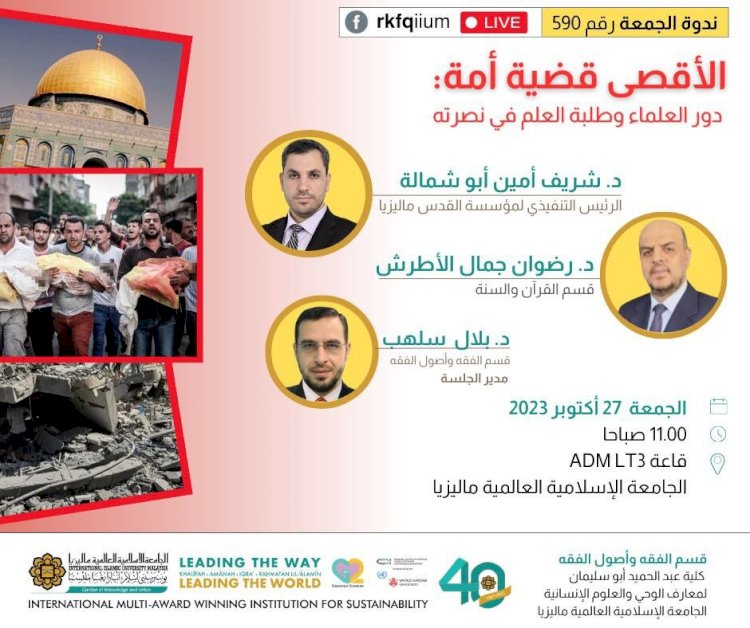
Roles of Scholars and Students
Radwan Jamal Yousef Elatrash, Associate Professor in the Quran and Sunnah Department at the International Islamic University Malaysia (IIUM), stressed the pivotal role of scholars and students in promoting awareness about the significance of Al-Aqsa Mosque and its rich historical importance among Muslims and the global community. He firmly believed that engaging in discussions and advocating for Al-Quds is a matter of honour.
He emphasized that Islam stresses self-defence and the protection of one's land and rights when faced with aggression. The Prophet Muhammad, peace be upon him, and his companions engaged in battles to uphold the principles and unity of the Islamic community. Notable examples of these battles include Badr, Uhud, and the Battle of Al-Khandaq.
Addressing injustice is considered a fundamental duty of every Muslim, and this principle carries particular significance in the context of ongoing conflicts like the one in Gaza. Some Palestinian children in this region see themselves as submitting themselves for a higher purpose, believing they are destined to become martyrs for the sake of Allah. While children elsewhere in the world aspire to lead ordinary lives, these young individuals are compelled to think in such a way due to the challenging circumstances they face, with Israel's policies contributing to their plight for several years.
To support the Palestinian people, he proposed a range of actions, including organizing seminars and informative lectures, establishing international networks, conducting research and documentation, sharing news, providing spiritual guidance, arranging social and cultural events to express solidarity, exerting diplomatic pressure on international entities, collaborating with non-governmental organizations dedicated to Palestinian issues, and offering assistance to those in need in Palestine.
Furthermore, he underscored the significance of prayers from Muslims across the globe as a powerful source of support for the Palestinian cause. In particular, he stressed the importance of Qunoot nazilah, a supplication for Allah's help during times of calamity. Additionally, he urged individuals to sever their connections with companies, producers, and business entities that lend support to the Israeli occupation and atrocities in Palestine.
Especially in a world where the media is selective and overlooks the Palestine issue, the importance of educating people and sharing accurate information cannot be overstated. Those involved in the field of education must put forth their utmost effort in this endeavour, as it is a response to injustice, cruelty, exploitation and a defence of humanity against assaults on its values and principles.
This report was prepared by postgraduate students at IIUM, Liya Hassan Wafiyya (Kulliyah of Education), Shahana Shirin Wafiyya (Kulliyah of Education), and Adila Wafiyya (ISTAC).
Disclaimer
The views expressed in this article are the author’s own and do not necessarily mirror Islamonweb’s editorial stance.

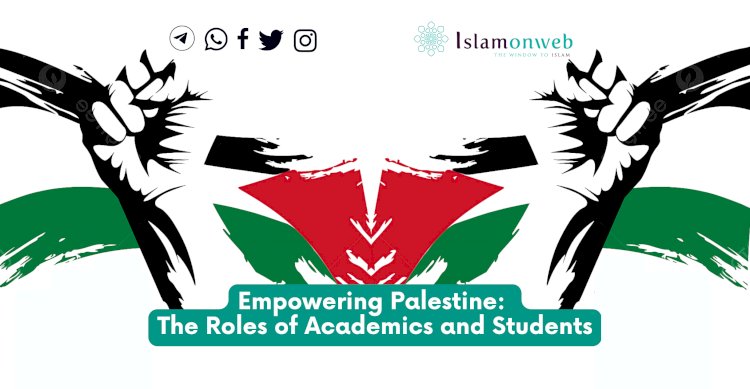



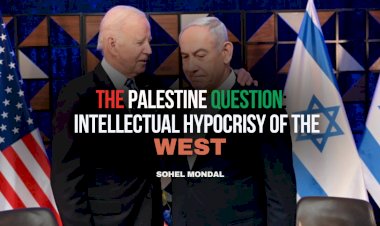

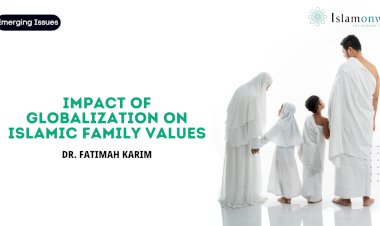
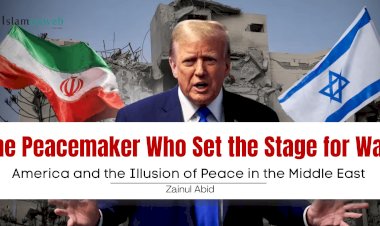
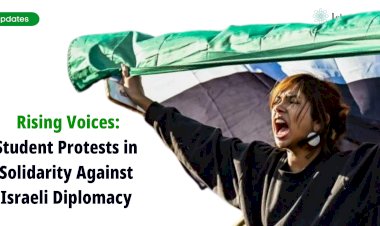














Leave A Comment